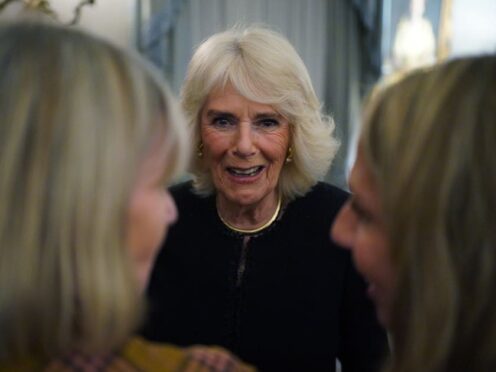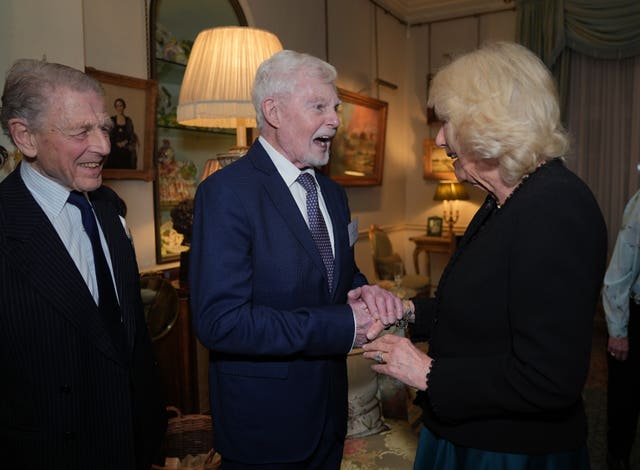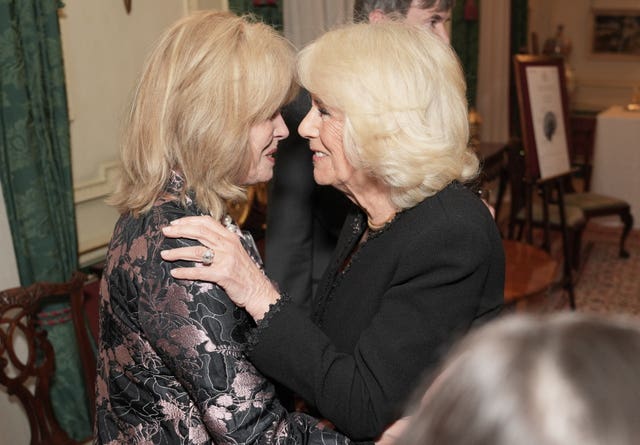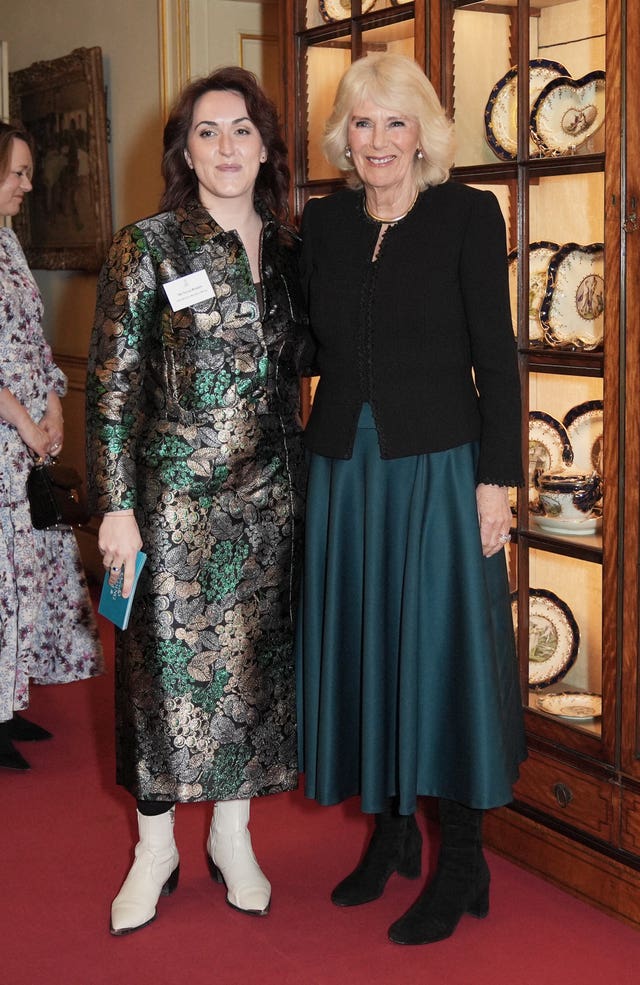
The Queen became the most senior royal to return to public-facing duties since the monarchy’s double cancer scare when she hosted an event celebrating the power of reading.
Camilla was the leading royal figure after the King’s enlarged prostate treatment and later cancer diagnosis, carrying out a string of royal engagements while the Prince of Wales supported his wife following surgery.
And she was back at work just a few days after the Princess of Wales’s shock news she is receiving cancer treatment but remaining hopeful.
The Queen had gathered authors, academics and celebrity supporters for an evening reception at Clarence House to mark new research commissioned by her Queen’s Reading Room literary project.

Dame Joanna Lumley, a supporter of the initiative was asked about Camilla’s prominent role and replied: “I think they’re all really dutiful, in theatres if somebody’s ill, somebody steps into their place, we go on with the understudy, we make the show great we keep on going.
“I think there’s a lot of professional and dutiful public service, public life which goes on that we’ve got so out of kilter with, we find it amazing.
“We all think she should be blubbing in a corner but that’s not what these people are made of.”

Among the guests were a host of celebrity supporters of the Queen’s Reading Room including the actors Helena Bonham Carter, Sir Derek Jacobi, Rupert Everett, Edward Fox and authors Sir Ian Rankin, Val McDermid and Sir Ben Okri.
Camilla, an avid reader whose literary project has grown beyond its roots as an online book club, highlighted the research during a speech.
She said: “…in addition to our five a day and our 10,000 steps, we should all be aiming for at least five minutes of reading every day for invaluable benefits for brain health and mental wellbeing.
“Just as we always suspected, books are good for us – and now science is proving us right!”

Camilla launched her reading room during lockdown and it has grown into a major literary initiative which now has a podcast attracting leading authors and a literary festival in its second year.
Vicki Perrin, chief executive of the Queen’s Reading Room, followed the Queen and spoke in-depth about the findings of the study.
She said: “The answers, I’m pleased to say, are even more astonishing than we expected.
“Just five minutes of reading a work of fiction immediately reduced stress in our participants by nearly 20%.
“But not only that, bio-signals we were able to take show that a short period of reading can actually help us better manage our stress, significantly increasing our concentration and improving our ability to focus on the next task.
“Those five minutes really can make the rest of our day better.
“We found that high frequency readers are significantly less likely to experience feelings of loneliness important not just for the health of society, but because leading research tells us that loneliness can increase the likelihood of different dementias.”
The poet and novelist Sir Ben, whose book The Famished Road won the Booker Prize in 1991, reflected on the popularity of Camilla’s literary project.
He said: “Reading is such a solitary thing, but it creates communities – it’s very paradoxical.
“Three people meet who have read the same book and they are not three different people, they are now three people connected by a single experience unique to each one of them.”

Enjoy the convenience of having The Sunday Post delivered as a digital ePaper straight to your smartphone, tablet or computer.
Subscribe for only £5.49 a month and enjoy all the benefits of the printed paper as a digital replica.
Subscribe